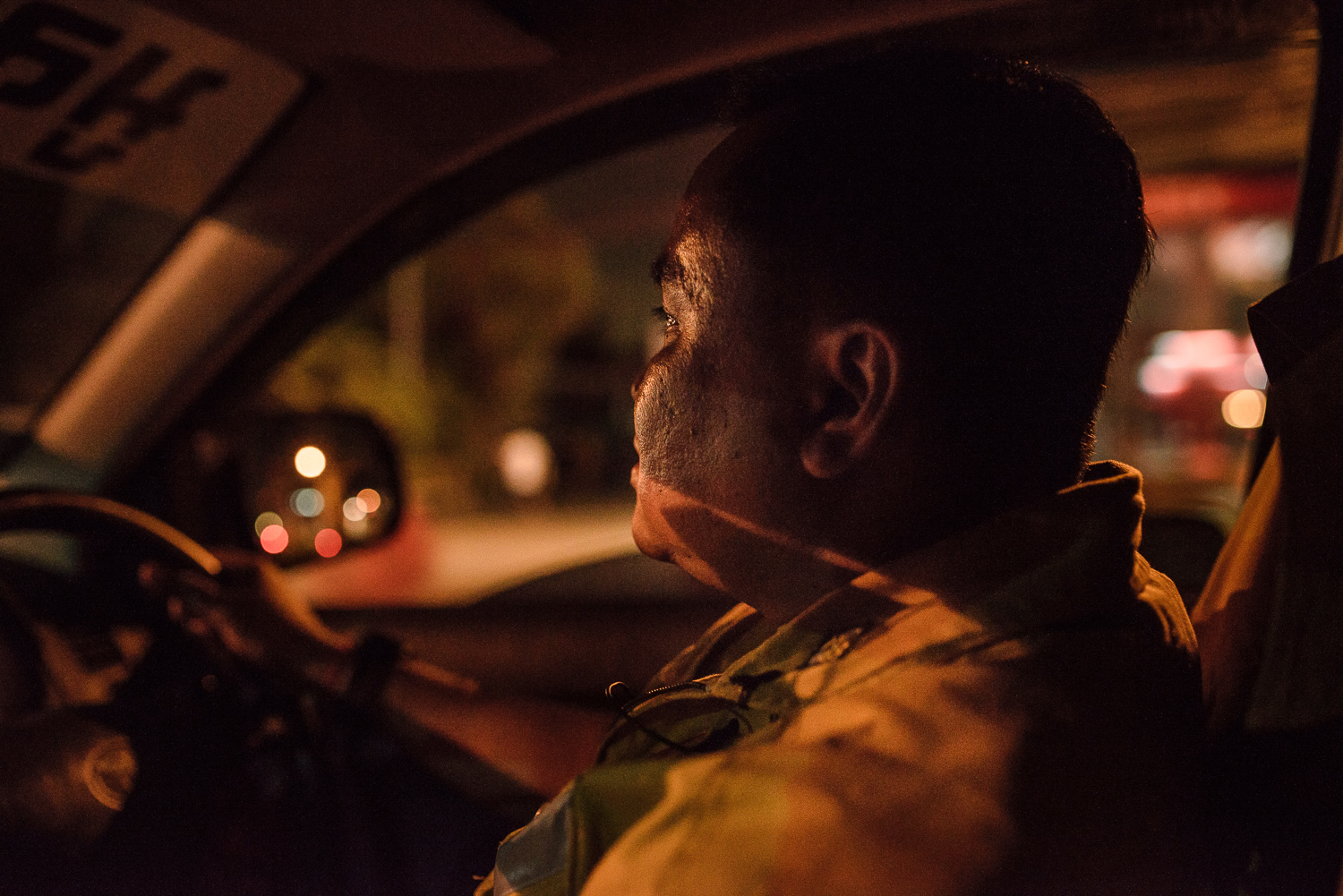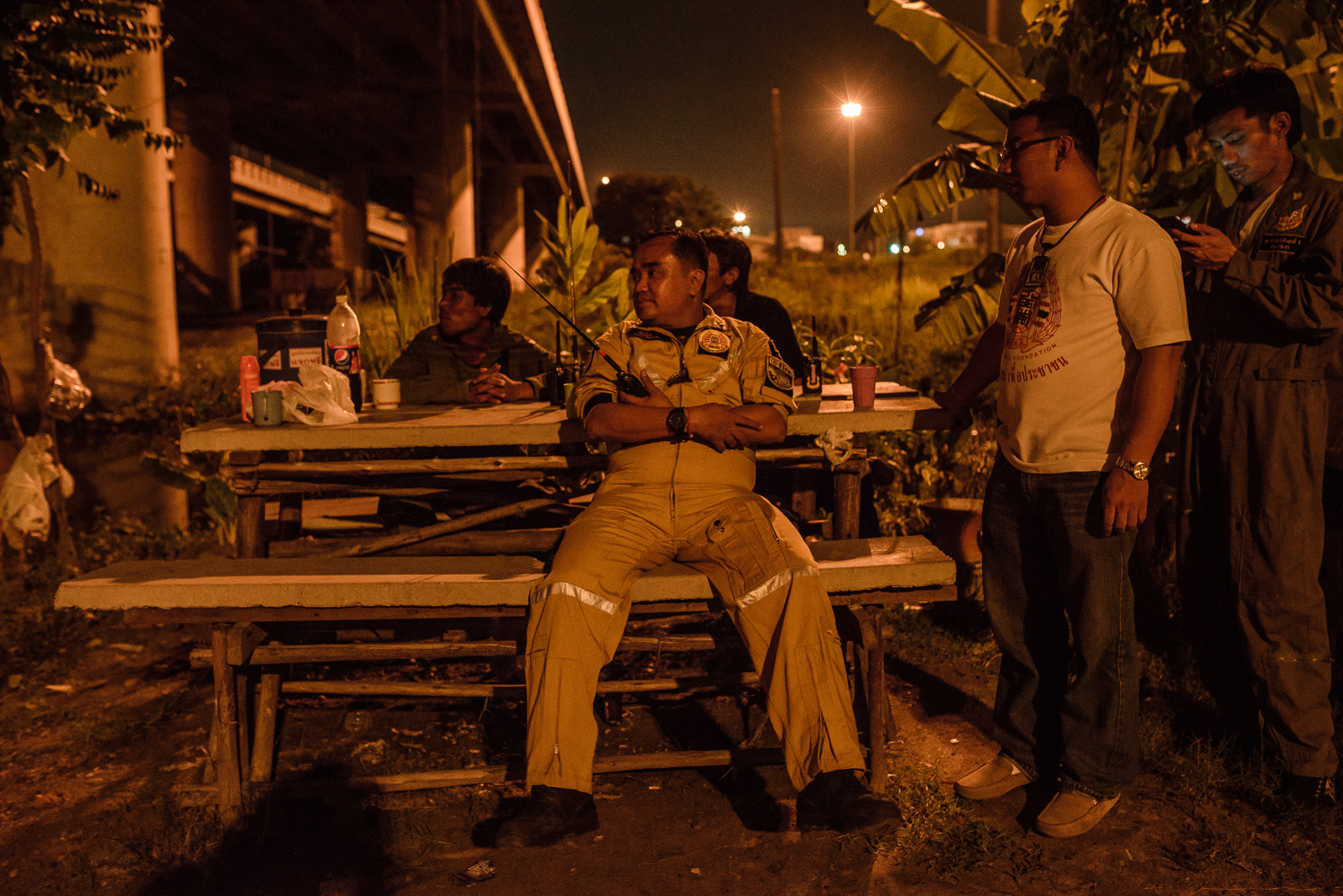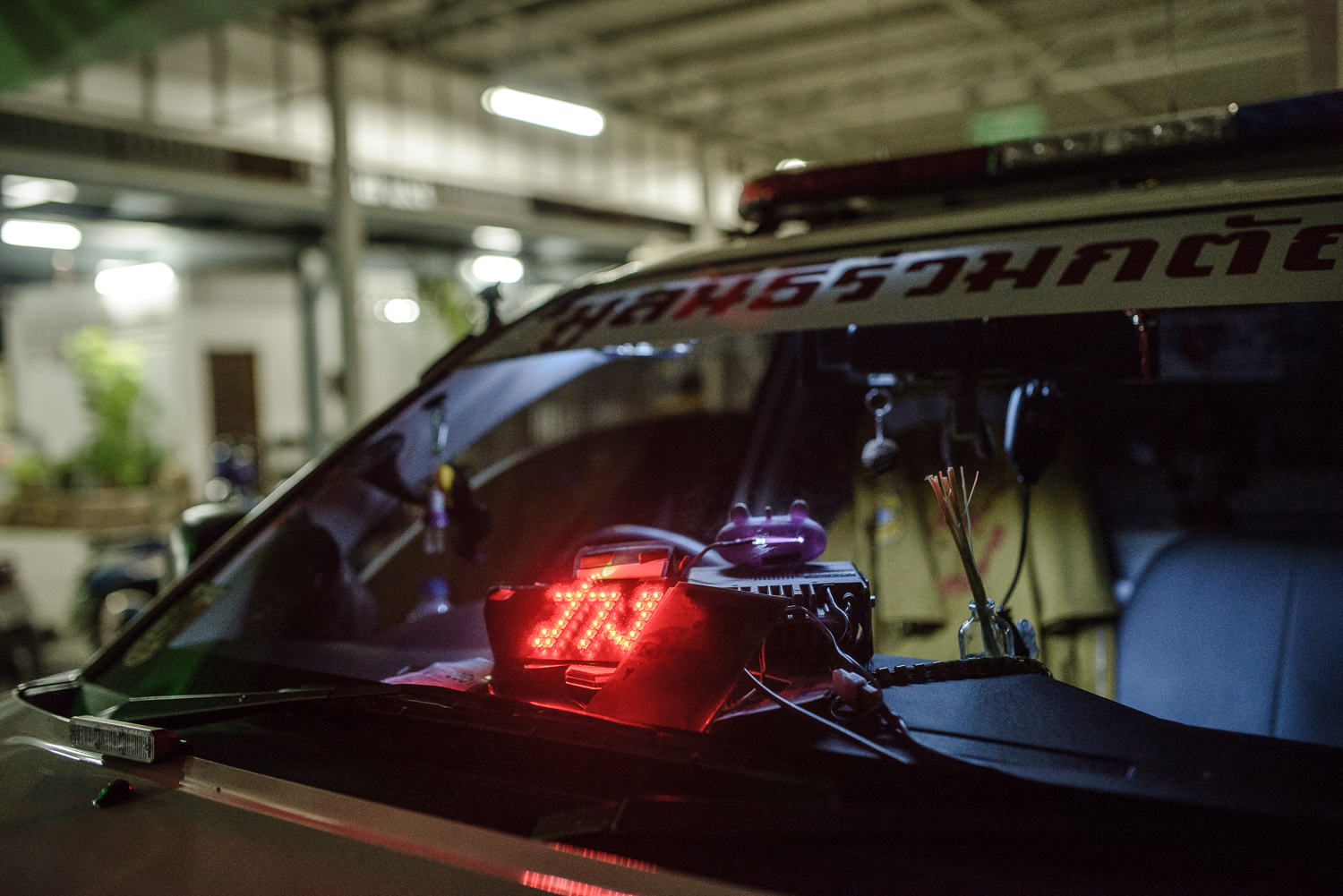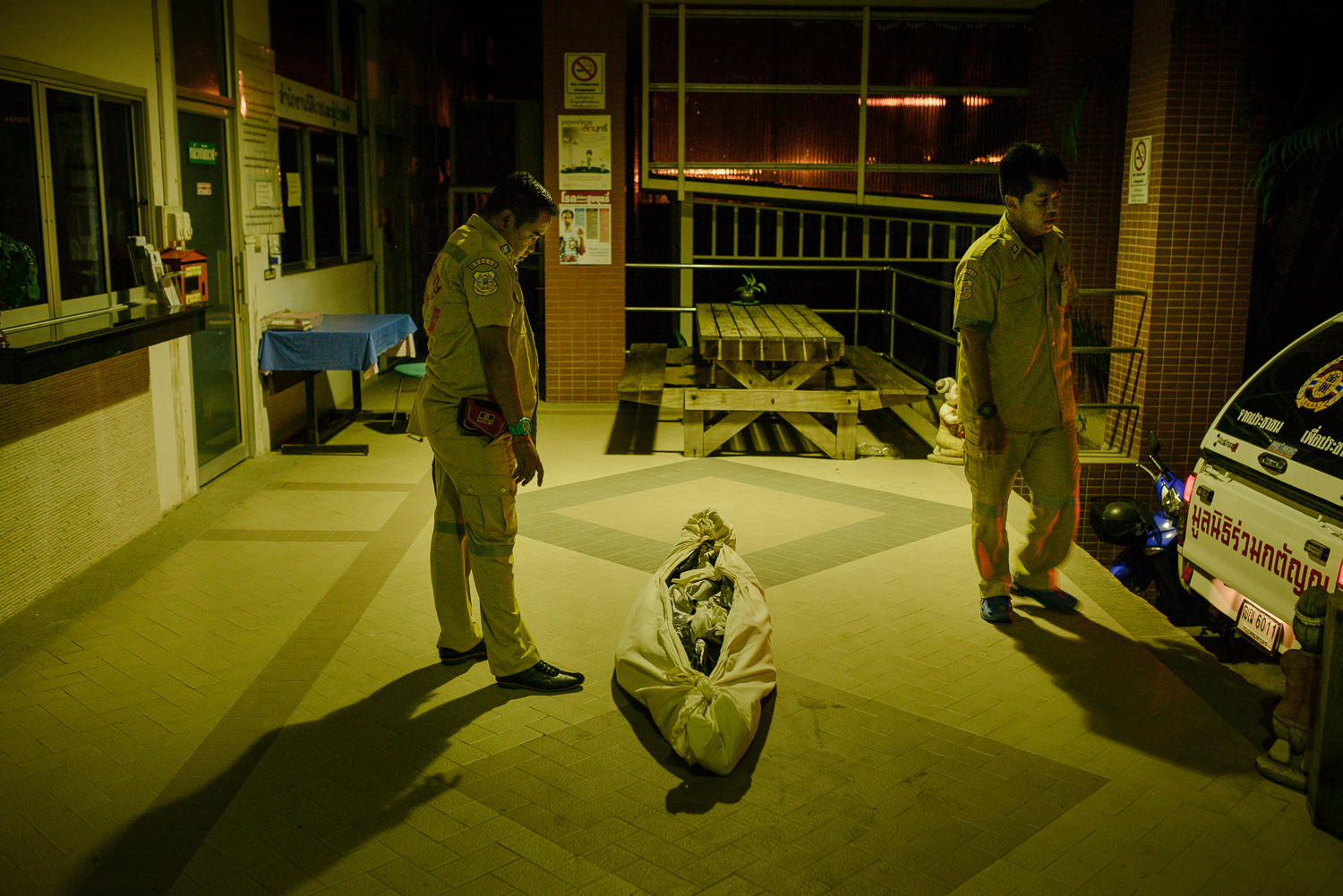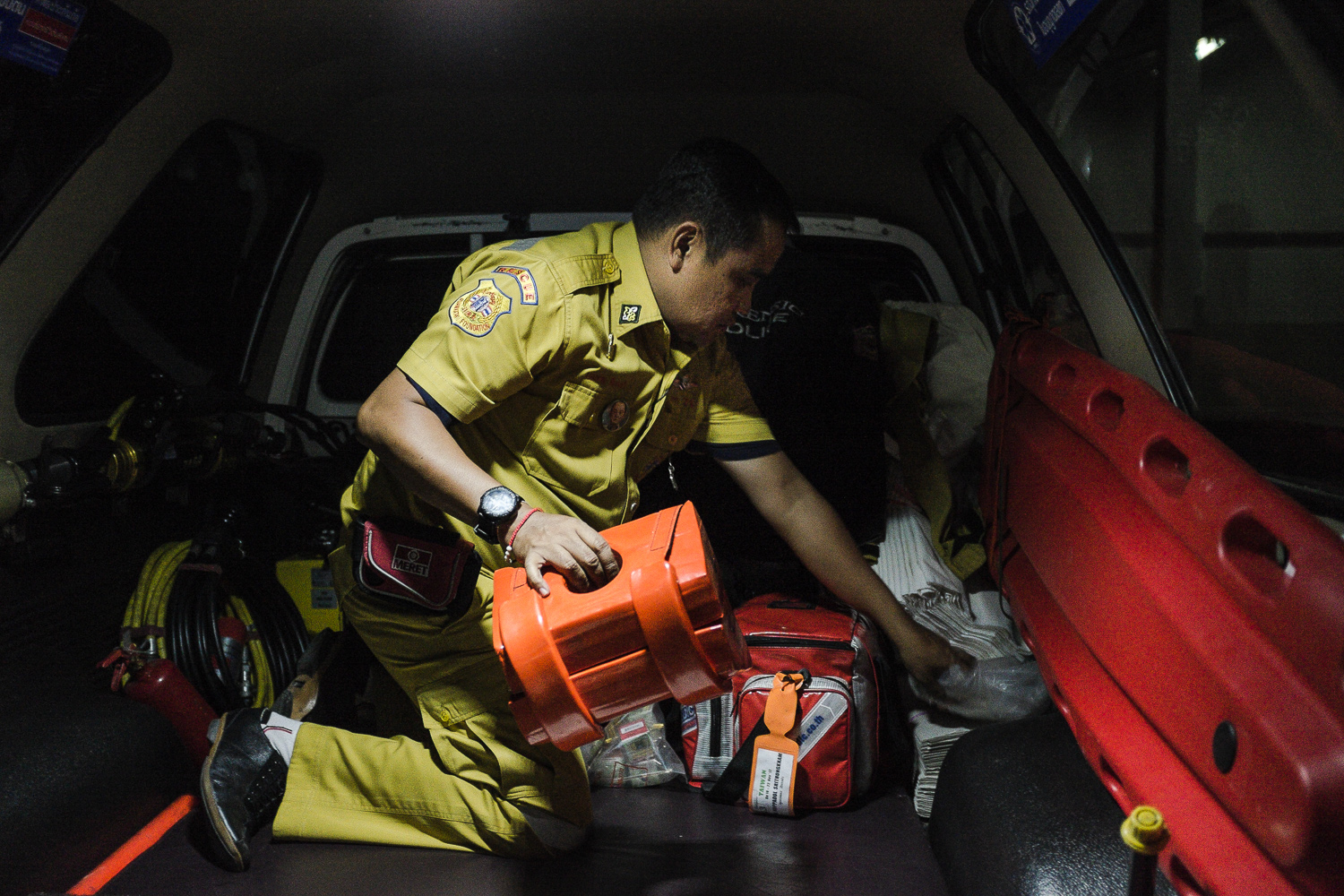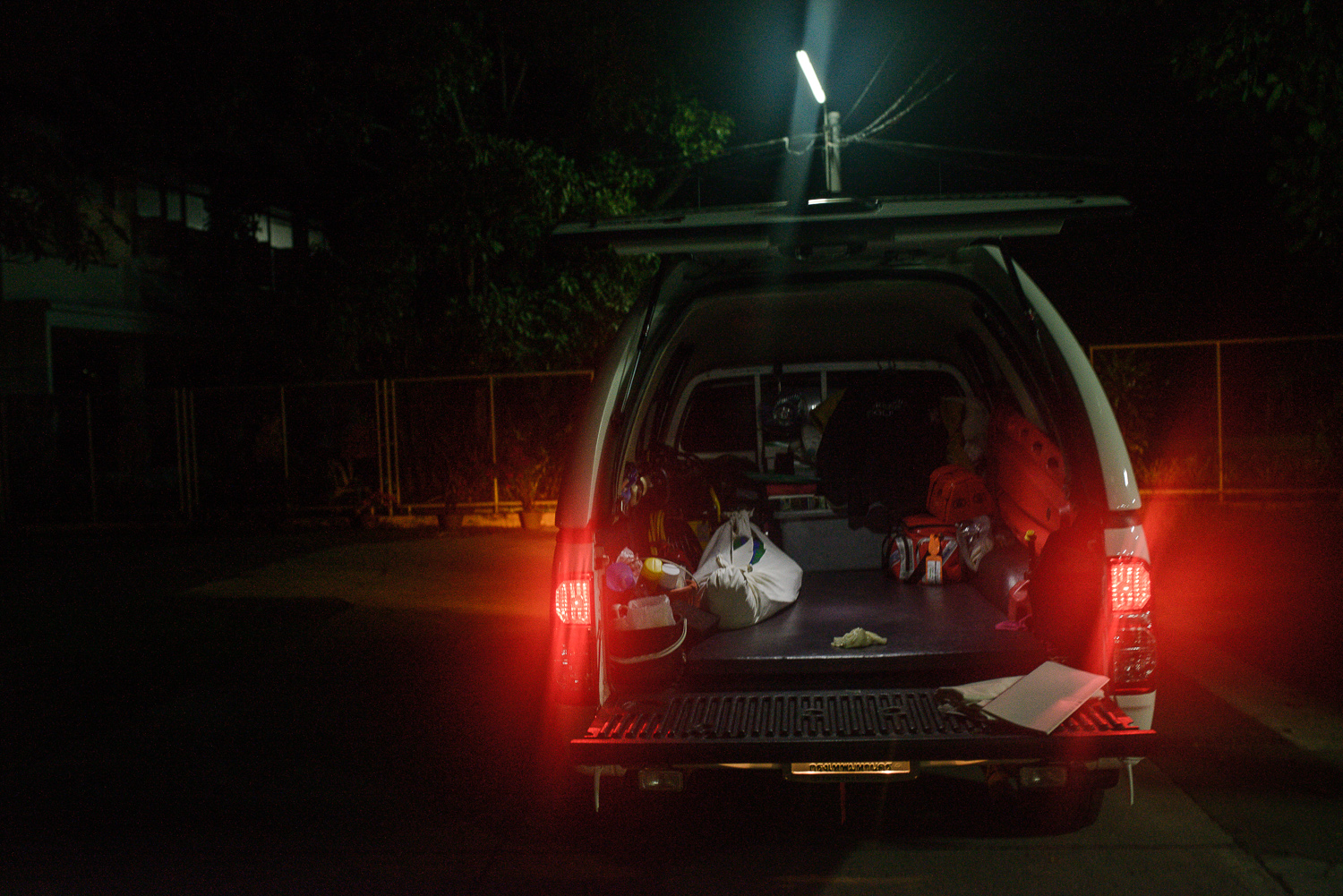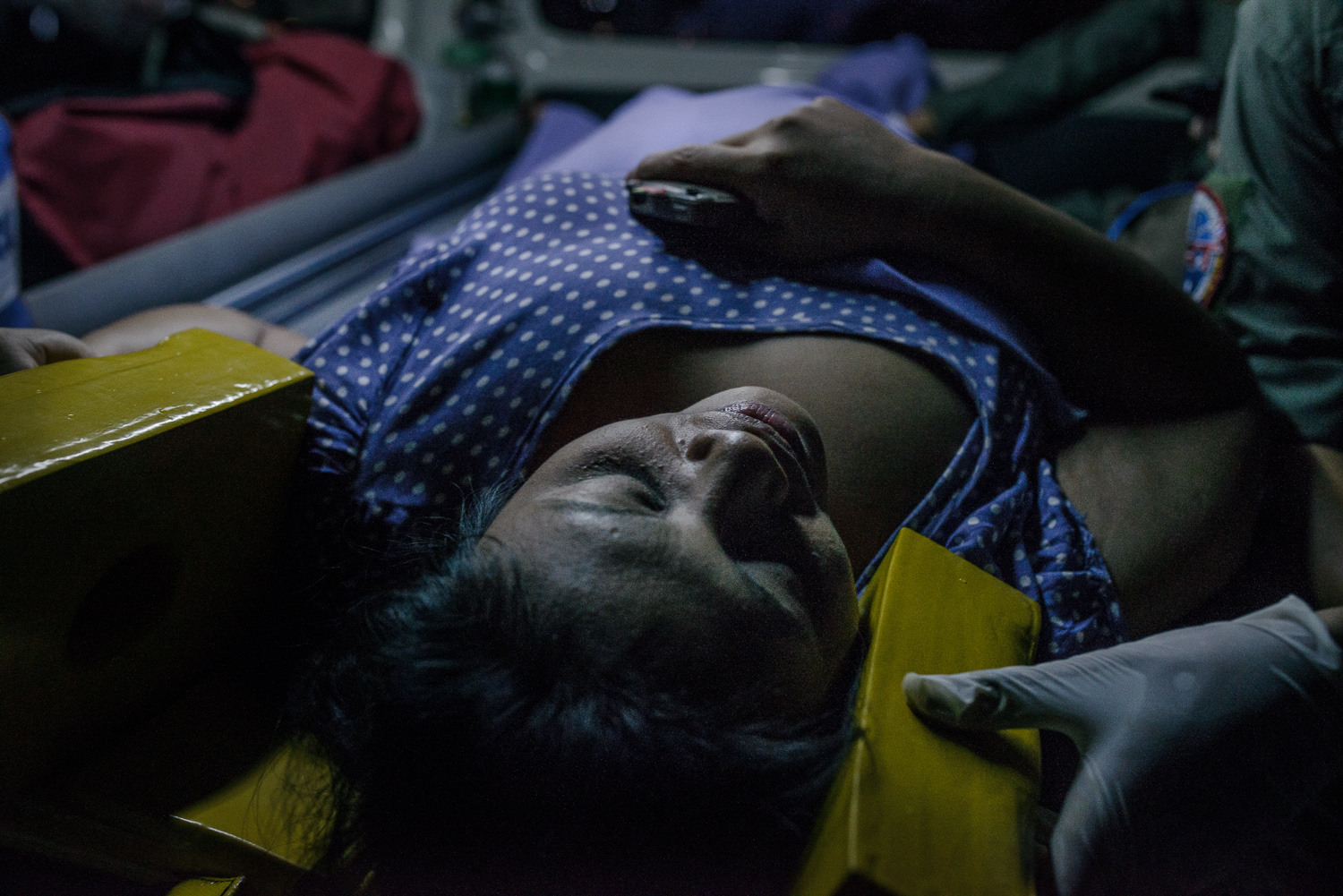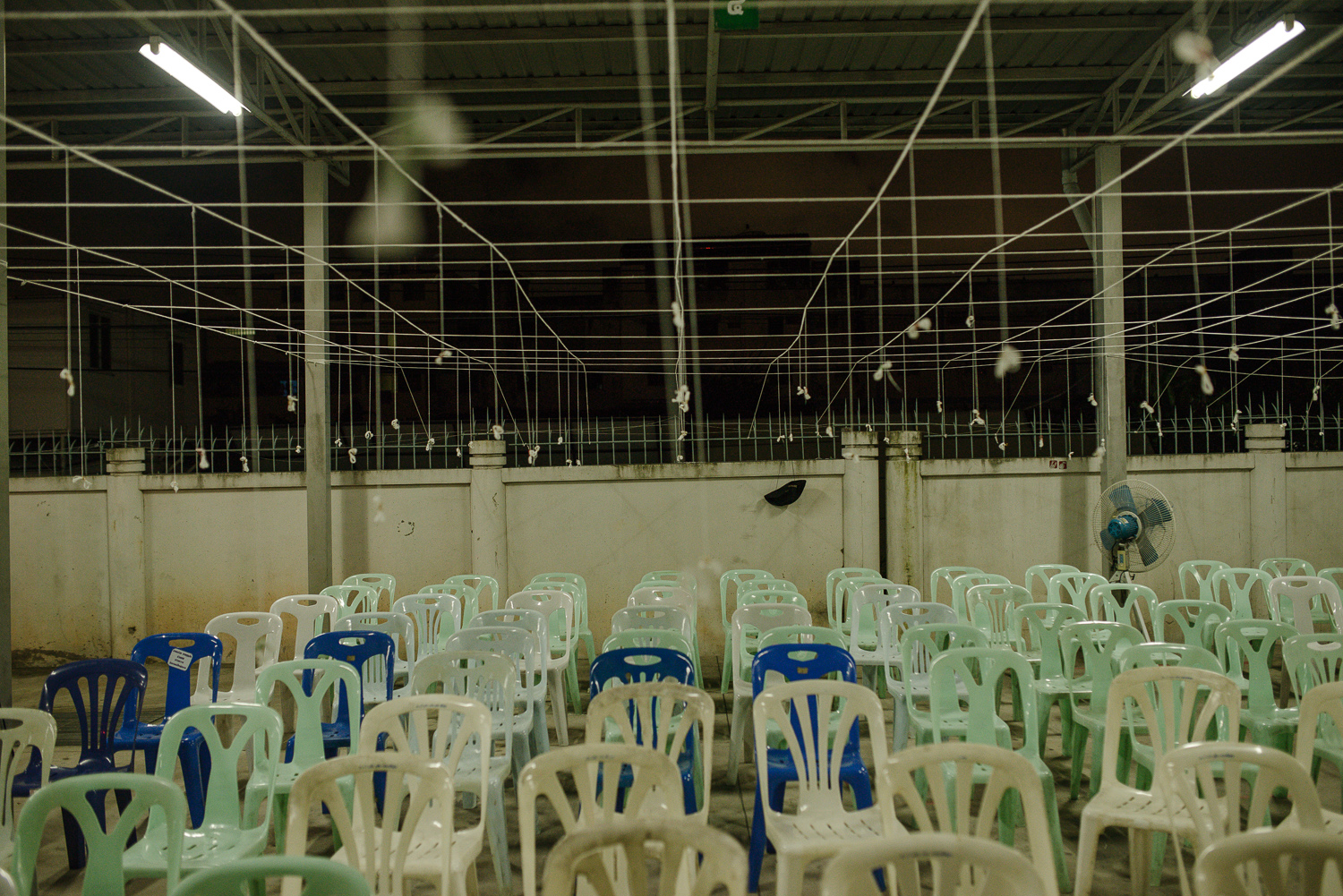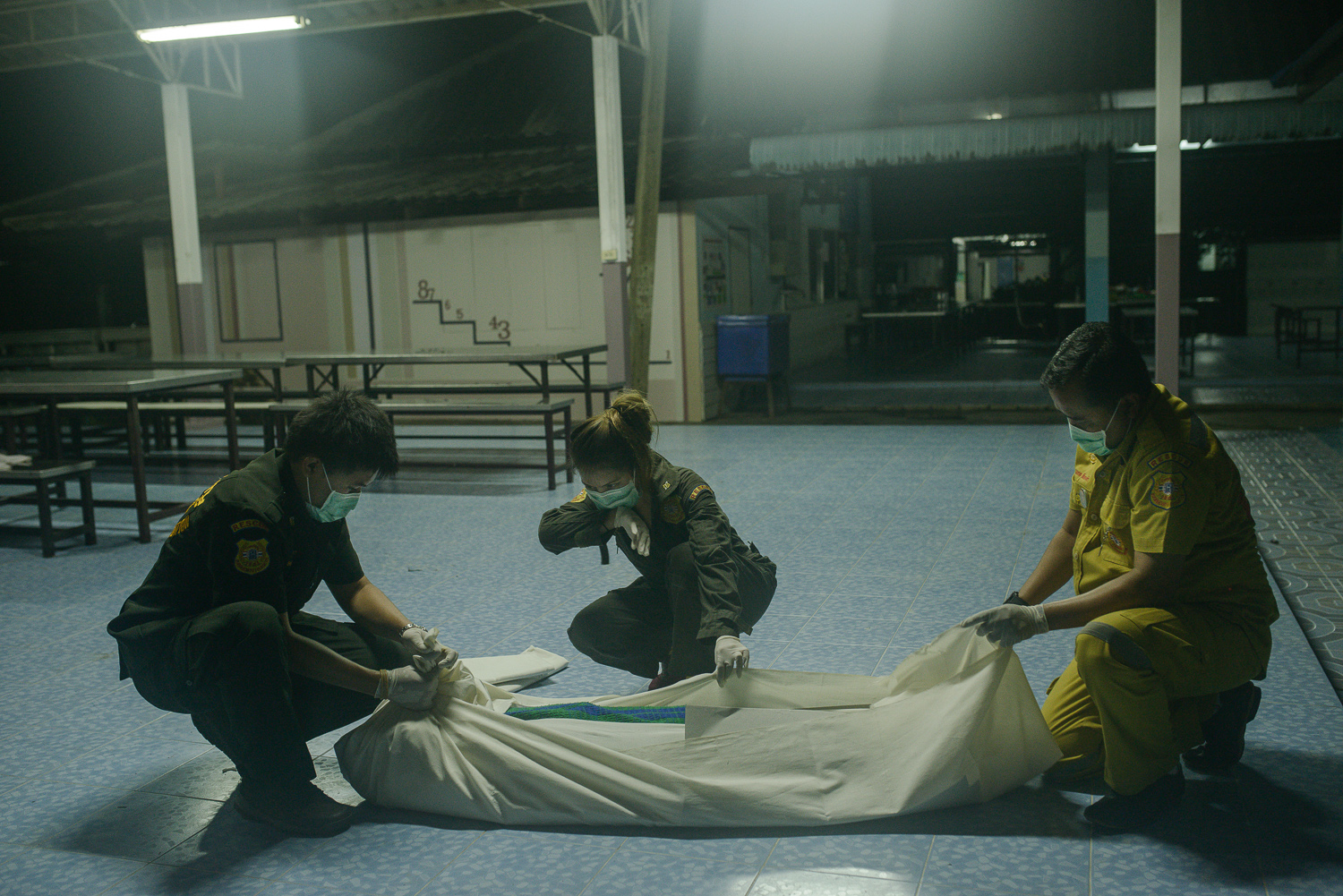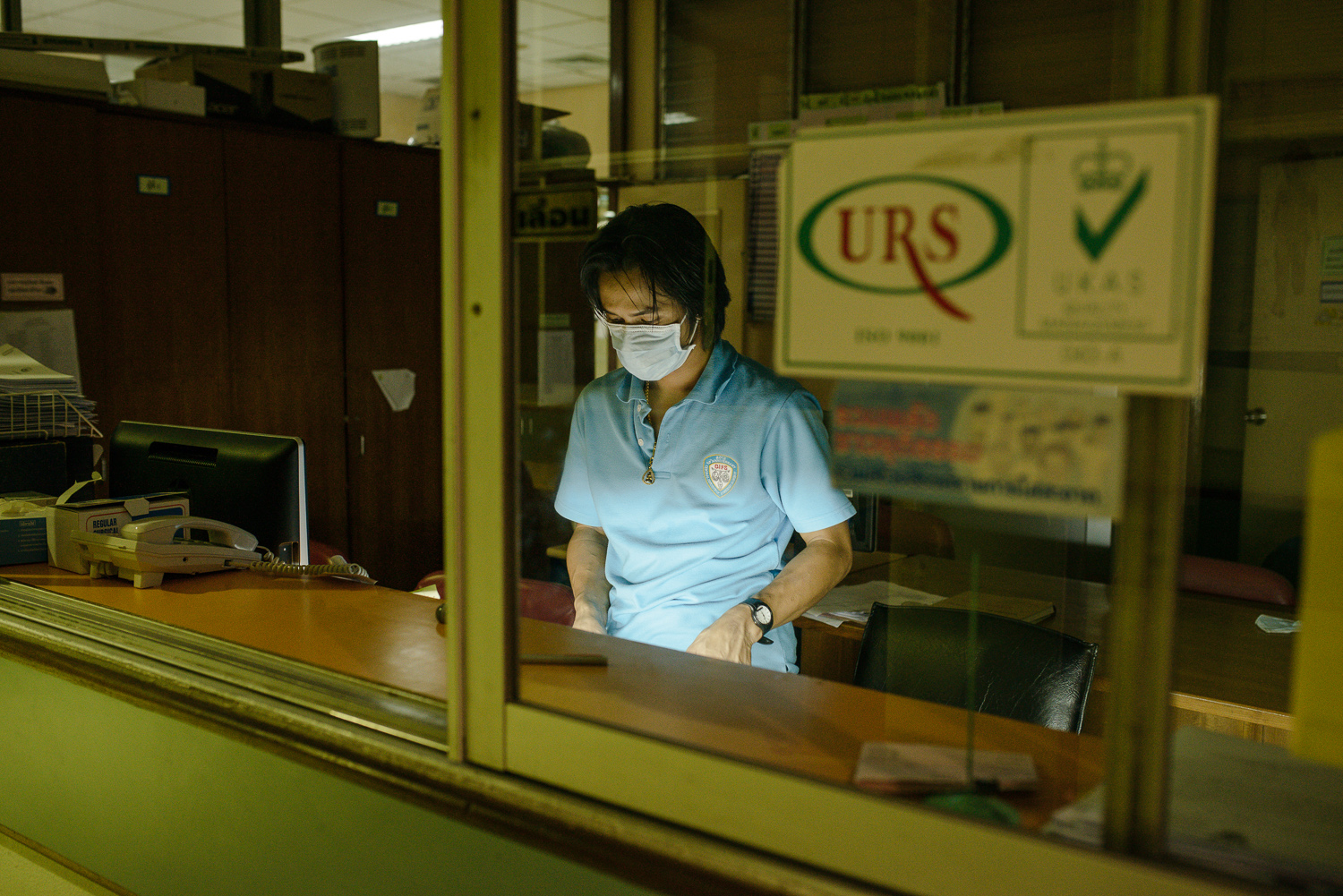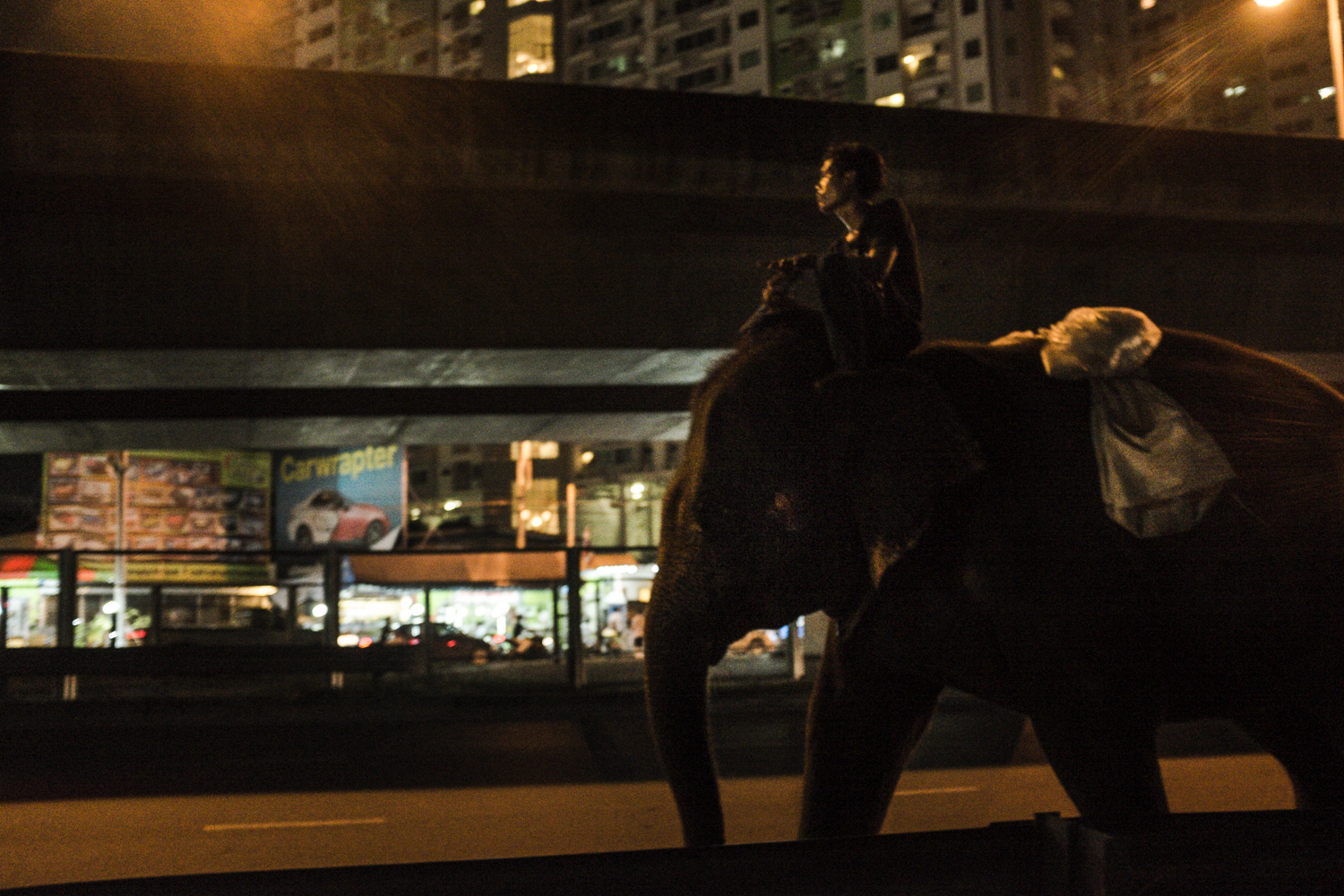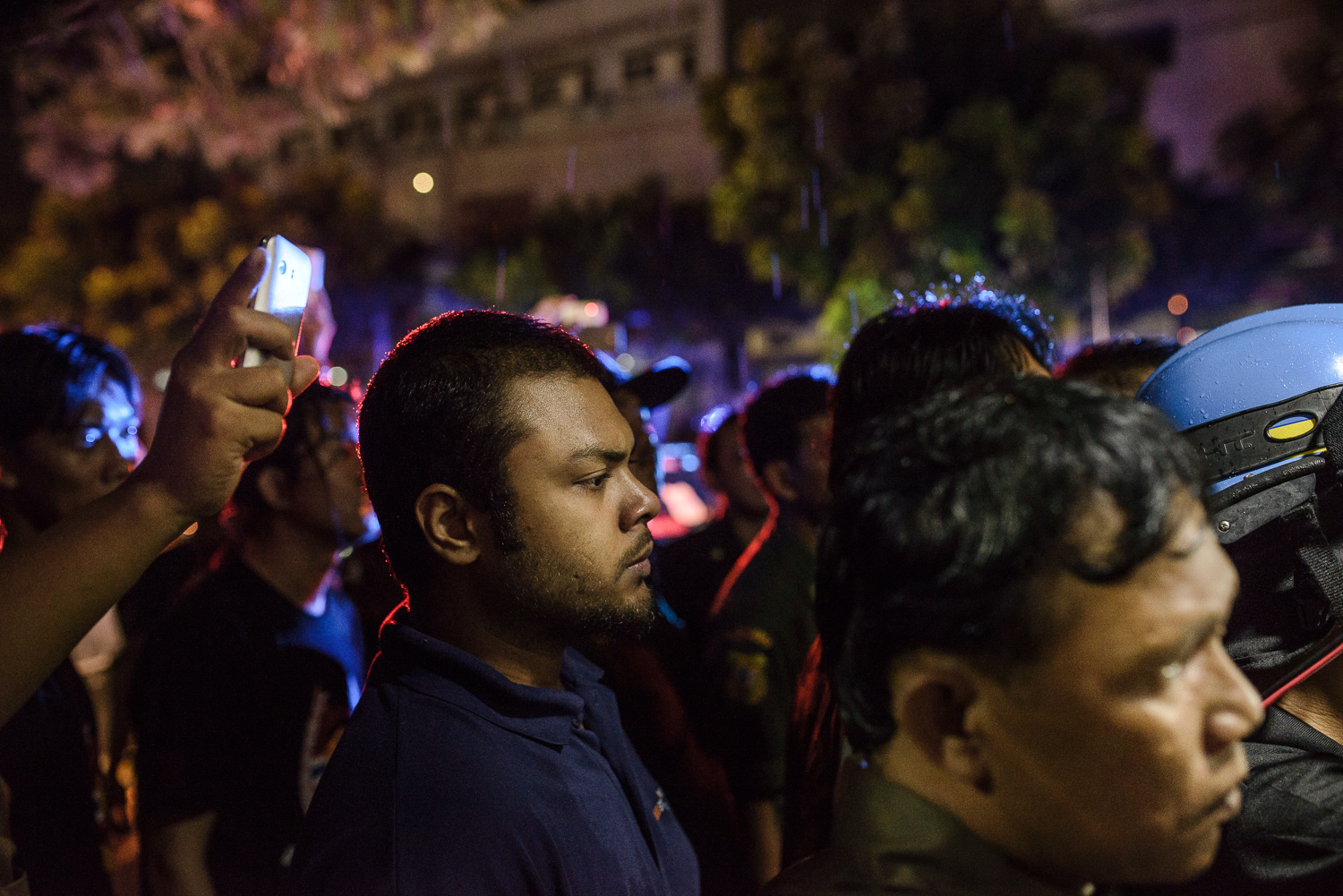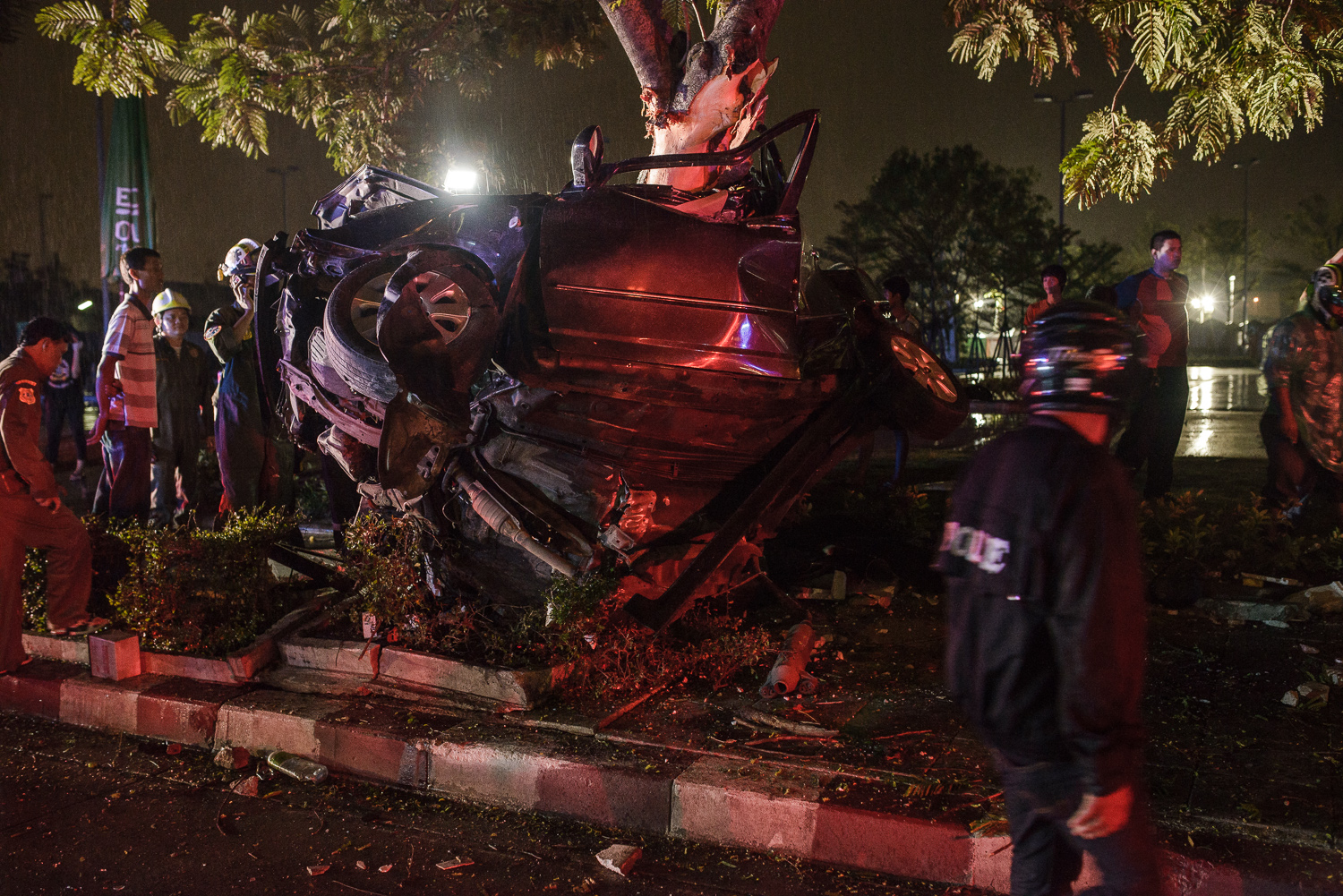
OF BANGKOK

To outsiders it seems a ghastly existence, to live in such close proximity to death, yet in some ways it seems more real than our normal lives. This is the visceral, raw edge of life, always on the border between the living and the dead, and it breeds a rare kind of vitality. Pom is the training manager for Ruam Katanyu, a volunteer ambulance service that collects the dead in return for karmic merit. Ebullient with his ruddy complexion and mischievous grin, he reminds me of a character from Chaucer's 'The Canterbury Tales', ready to ply you with gruesome tales of ghosts, death and destruction. Pom is our guide through the sullen underpasses, violent crashes and lonely encounters that make up his nights, his joviality and good humour constantly disarming.
This Bangkok harbours a languid and dystopian menace that lurks beneath the crumbling and decaying streets, its skylines littered with the unfinished building projects of a once booming economy. This city will eat you up. With the lunatic taxi drivers, the shit-filled canals and the packs of wild dogs that roam the streets, everywhere there lies the abyss, waiting to stare back into you. Nature is murder, and the humidity is oppressive.
